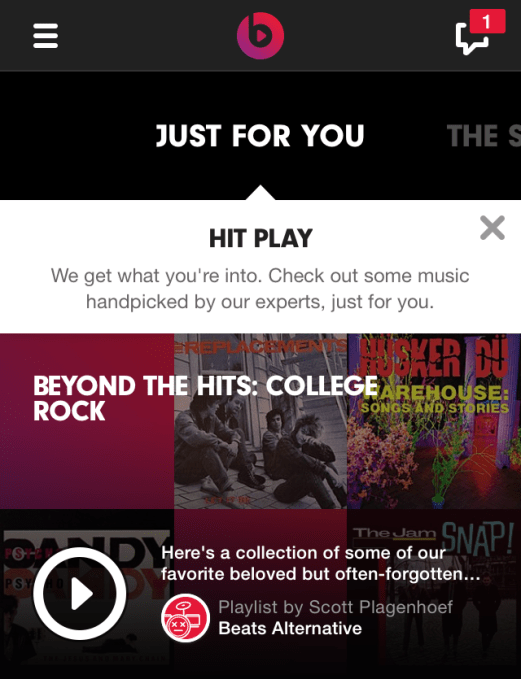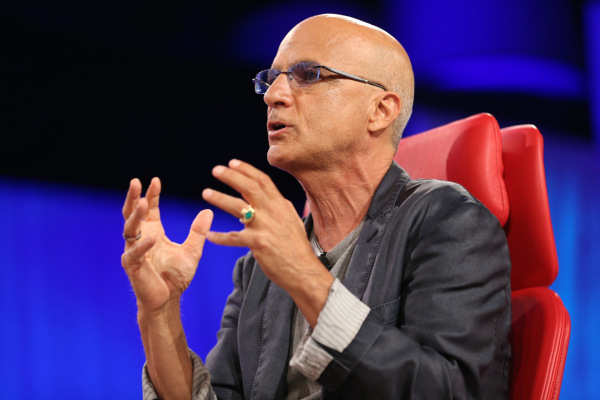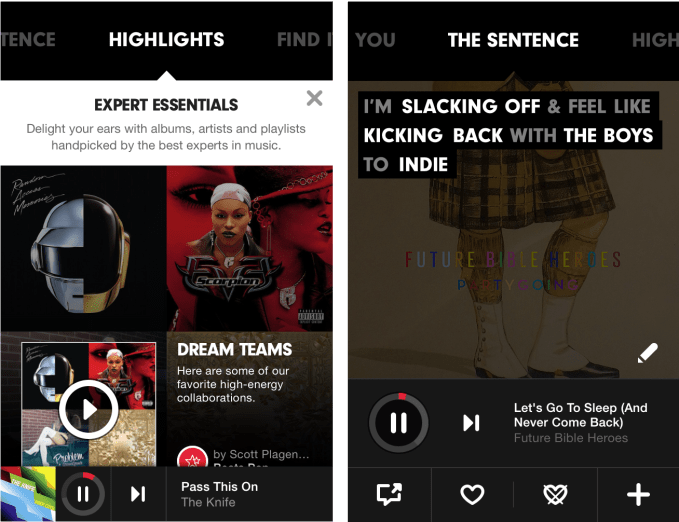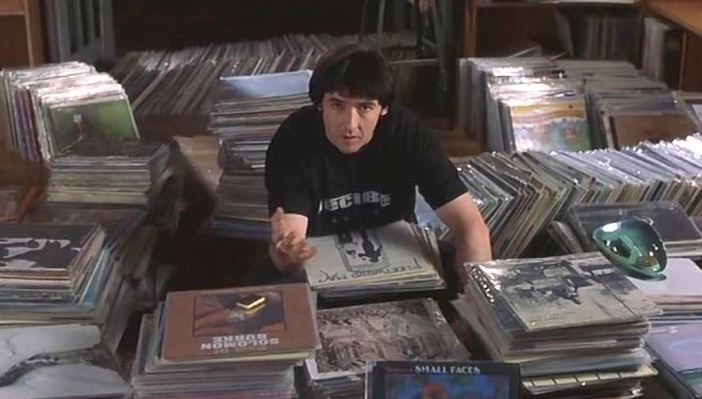Ask the average person who their favorite musicians are and they’ll struggle to name more than a few. That’s one reason search-based streaming services haven’t hit critical mass. They force users to know what they want to hear. And this is why Tim Cook kept touting Beats as the “first streaming service that really got it right. Beats doesn’t ask people what they want to listen to. It tells them. That’s curation.
Spotify and Rdio have suggestions, but they’re still centered around an intimidating search box connected to the history of recorded music. The plethora of choices causes decision paralysis. This friction to play something great creates a barrier to use. Best-case scenario: you probably keep searching for and playing the same songs. And most people already using an on-demand streaming service are in a niche of music aficionados.
 Apple doesn’t do niche. Apple does scale. And the way to do scale with an on-demand streaming music service is to make it idiot-proof.
Apple doesn’t do niche. Apple does scale. And the way to do scale with an on-demand streaming music service is to make it idiot-proof.
That was Apple’s strategy with the iTunes download store. Keep it bright and simple like a digitized Wal-Mart music department where mainstream listeners buy CDs. It was built for everyone to be able to buy songs from the top of the charts, new releases, or that they’d heard elsewhere. It worked, and iTunes has grown to 800 million users.
As digital music sales decline and streaming grows, Apple is using Beats to smooth the transition away from the iTunes download model to cloud subscriptions. But if Beats (which could one day be merged with iTunes) is ever going to get as big as iTunes is today, it has to embrace a different interface.
Rather than paying à la carte, you’re free to listen to anything. But most people won’t know what to choose. And herein lies a big answer to why Apple bought Beats. It liked its curation style.
In the acquisition press release, Apple explains that Beasts “focuses on providing a personalized music experience for each user through a unique blend of digital innovation and musical passion. Programmed by a trusted team of well-respected music experts with over 300 years of experience across all genres, Beats Music delivers the right music for any situation, any time, and any preference, personalized to your tastes.”
In Tim Cook’s letter to Apple employees (obtained by 9To5Mac), he says “Both Apple and Beats believe that a great music service requires a strong editorial and curation team, and we will continue to expand what we do in those areas.”

Beats’ Jimmy Iovine discusses the need for curation
Cook also told Re/Code’s Peter Kafka that Beats “had the insight early on to know how important human curation is.” And Beats CEO Jimmy Iovine said onstage at Code Conference that “algorithms can’t do the job alone” and curation is critical because the album is going away.
Unlike some backend technology Apple surely could have built, Beat knows how people think about music. The whole app is built around that knowledge.
The home screen is ‘Just For You’, which explains “We get what you’re into. Check out some music handpicked by our experts”. Press play, and something relevant like “Beyond The Hits: College Rock” starts playing with no need to search.

Slide over and there’s “The Sentence” which lets you say what you’re up to, where, with who, and what genre you’re feeling. Select “I’m [poolside] and feel like [dancing] with [my boo] to [hip-hop]” and you’ll get Lil Wayne’s “6 Foot 7 Foot,” a perfect fit for this situation.
Another swipe brings up “Highlights” with more collections of jams like “Dream Teams” featuring high-energy collaborations. Or you can explore music by genre, select an activity like “Breaking Up” or “Celebrating,” or choose a curator you trust like DJ Mag or Pitchfork.
 Not once do you have to type anything. You never have to know what artist or song you want to hear. Sure, Beats has a search box. But that’s not the point. Beats knows music so you don’t have to. That’s a recipe for Apple’s Beats to achieve mainstream success, because the have-nots of music taste far outnumber the haves.
Not once do you have to type anything. You never have to know what artist or song you want to hear. Sure, Beats has a search box. But that’s not the point. Beats knows music so you don’t have to. That’s a recipe for Apple’s Beats to achieve mainstream success, because the have-nots of music taste far outnumber the haves.
It’s a lot like what Beats did for headphones. It didn’t make them for audiophiles. Beats made them cool looking so anyone could wear them on the street. It made decent-sounding headphones part of popular culture, and now it could do the same for streaming.
[Image Credit: High Fidelity via Since My Baby Left Me]
